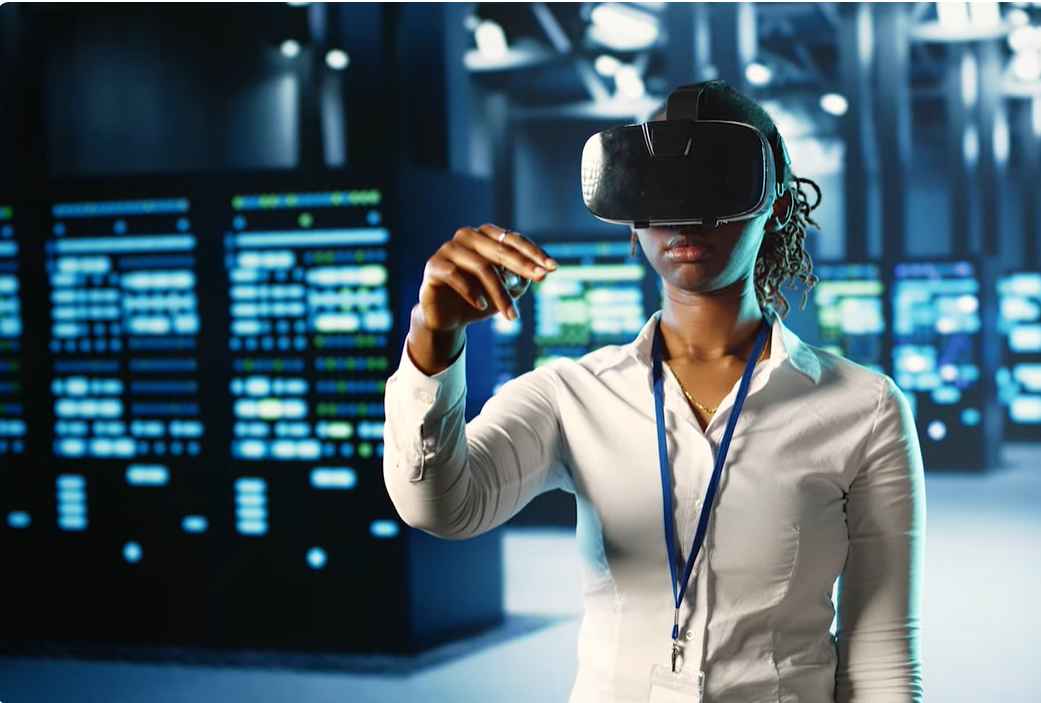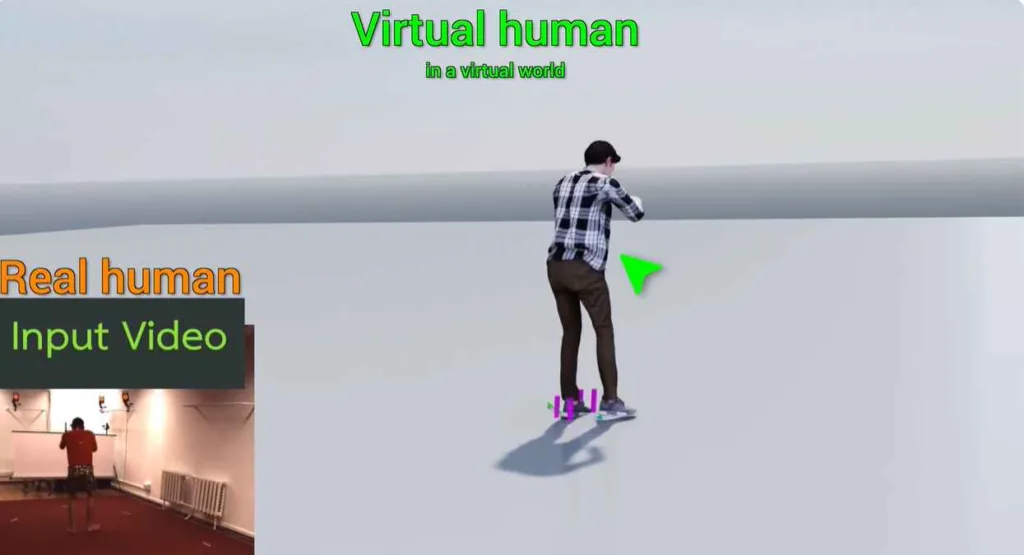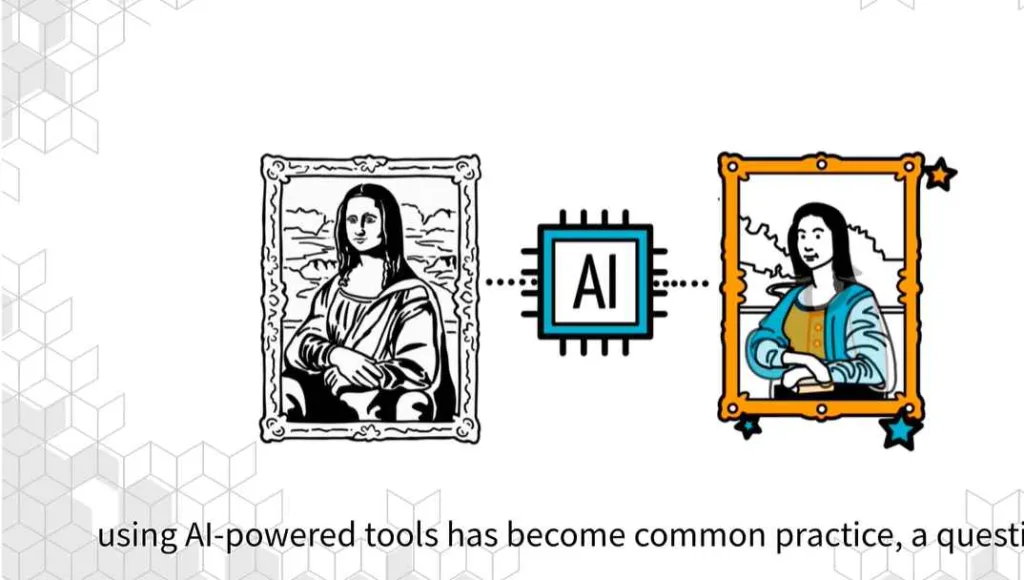Physical Address
304 North Cardinal St.
Dorchester Center, MA 02124

AI revolutionizes the media and entertainment industry by enhancing content personalization and streamlining production processes. It offers predictive analytics and audience insights about the Role of AI in Media And Entertainment.
Artificial intelligence (AI) stands at the forefront of innovation in the media and entertainment sector, profoundly altering both content creation and consumption.
This technological force enables companies to curate highly personalized content recommendations, captivating diverse audiences.
AI tools aid in analyzing vast datasets and unveiling trends and preferences that inform strategic decision-making.
Content creators rely on AI for various tasks, including scriptwriting assistance, visual effects, and even editing, ensuring high-quality outputs with remarkable efficiency.
Moreover, AI-driven chatbots and virtual assistants provide interactive experiences, bolstering customer service and audience engagement.
With AI’s predictive prowess, media businesses optimize ad placements and content distribution, maximizing profitability.
Essentially, AI in the media and entertainment industry is not just a luxury but a critical element ushering in a new era of immersive and tailored media experiences.

Artificial Intelligence (AI) has emerged as the backbone of innovation. It’s transforming the media and entertainment industry by enabling creators to rethink the way content is developed, distributed, and consumed.
AI’s learning algorithms analyze viewing patterns and capture audience preferences.
This tailor experiences that are unique to individual tastes.
AI-driven tools streamline the visual effects (VFX) pipeline.
Creating stunning visuals no longer requires extensive manual labor.
Data-Driven Storytelling marks a revolutionary shift in media and entertainment. With AI technologies, this approach harnesses data to craft narratives that captivate audiences.
It fine-tunes every aspect of storytelling. From understanding audience preferences to automated script generation, data drives the creative process. This results in highly relevant and engaging content.
Digging deep into audience data transforms how stories get told. AI cultivates insights from viewer behavior, ensuring storytellers connect with audiences effectively.
By analyzing viewing patterns, content creators tailor their offerings. This leads to storytelling that resonates on a personal level.
Implementation of audience analytics results in dynamic content strategies. Creative teams make informed decisions about character arcs and plot twists. This keeps viewers deeply invested in the story.

AI is redefining the scriptwriter’s role by offering automated assistance. Algorithms analyze successful screenplays and generate creative suggestions.
Storytellers use these tools to overcome creative blocks and enhance narrative structure.
| Feature | Benefit |
|---|---|
| Automated plot suggestions | Enhanced storytelling efficiency |
| Character development assistance | Deeper, more relatable characters |
| Dialogue optimization | Sharper, more authentic dialogue |
Writers leverage automated scriptwriting tools to refine their craft. They generate rich, complex storylines that capture the imagination. These tools offer a new level of creative potential.
The Music Industry’s AI Revolution is transforming how we create, produce, and enjoy music. From composing fresh melodies to fine-tuning soundtracks, artificial intelligence opens astounding possibilities.
Imagine new tracks tailored to your taste by smart algorithms, or studios where AI polishes the music to perfection. This revolution is here, and its tune is irresistible.
Imagine a world where hit songs are born from code. AI is now composing music that stirs the soul, with melodies and harmonies designed by algorithms.
These digital composers understand patterns in music theory and churn out original compositions across genres. They supply endless streams of fresh soundscapes, from pop hooks to cinematic scores.

AI has taken the producer’s seat, revolutionizing the studio experience. It now shapes the final sound of a track, offering precision that captures the artist’s vision.
This smart technology adjusts volume levels, applies audio effects, and balances sound elements with a nuanced touch. It enhances the clarity and depth of music, making each note resonate with the listener.
| Task | AI’s Role |
|---|---|
| Volume leveling | Automatic adjustments for consistency |
| Audio effect application | Intelligent enhancement of sound textures |
| Sound balancing | Optimal mix for immersive listening |
The media and entertainment industry is witnessing a revolution as AI reshapes how audiences experience content.
From films to video games, Artificial Intelligence creates personalized, engaging, and immersive experiences that were once the realm of science fiction.
Let’s dive into the ways AI is elevating audience engagement to new heights.
The fusion of Virtual Reality (VR) and AI offers an immersive escape unlike anything before. Audiences can now step inside their favorite movies or explore new worlds with a sense of presence that’s strikingly real.
AI-driven algorithms adapt to the VR environment in real-time, making the experience deeply personal and interactive.
AI doesn’t just change how we play games or watch shows; it transforms them into interactive experiences.
Audiences are no longer passive observers but active participants, influencing the direction and outcome of the content they consume.
| Feature | Benefit |
|---|---|
| Adaptive Storytelling | Plots and characters that adapt to choices, keeping the content fresh and engaging. |
| Real-time Feedback Loop | AI adjusts difficulty and content based on player performance, enhancing satisfaction. |
| Social Interaction | AI chatbots and virtual hosts encourage social connections between players and viewers. |
As media and entertainment continue to evolve, the role of AI in creating advanced and personalized audience experiences will surely grow, shaping the future of how we interact with content in ways that captivate and delight.

Think about how news reaches you every day. In today’s world, AI plays a big part in journalism and newsrooms. AI helps to write news, check facts, and spot fake stories.
Let’s dive into how AI is changing the media and entertainment industry.
News reports can be written by AI now. This is automated news generation. AI uses data to write simple stories. For example, AI writes about sports scores and weather reports quickly and accurately.
AI also helps stop fake news. Fact-checking AI looks at news to find the truth. It checks facts against trusted data. AI even spots fake images and videos.
| AI Fact-Checking Tools | Benefits |
|---|---|
| Truth analysis algorithms | They sort real from fake. |
| Image verification tech | They reveal edited images. |
| Video authenticity checks | They detect fake videos. |
With AI, newsrooms can offer real stories. Readers get true information. Also, trust in media grows.
The media and entertainment industry stands at the cusp of transformation. Artificial intelligence plays a pivotal role. Ethical questions emerge as AI’s influence grows.
The future may balance creative human input with AI’s analytical prowess. Privacy battles personalization in content delivery. These are crucial considerations for all stakeholders.
In the intersection of AI and creativity, there’s a need to establish an equilibrium. Creative professionals worry about AI overpowering human ingenuity.
Yet, AI can enhance creative workflows. AI assists in everything from scriptwriting to visual effects. Its capabilities should enhance, not replace, human creativity.

The push for personalized media experiences rises. AI’s ability to analyze data ensures tailored content. The challenge lies in protecting user privacy.
Companies collect vast amounts of data. They must follow strict ethical guidelines. A balance is essential:
| Data Use | Privacy Concerns | User Benefits |
|---|---|---|
| Viewership analytics | Data security risks | Better content recommendations |
| Behavioral profiling | Personal boundaries | Customized viewing experiences |
Trust and transparency are paramount. Users must be aware of data usage. They should control their digital footprints.
AI in media production automates tasks like editing and sorting content. It facilitates personalized content creation and makes processes efficient. AI algorithms can predict consumer preferences, thereby tailoring the media experience for individual viewers.
AI-powered recommendation engines analyze user behavior to suggest personalized media content. These systems learn from user interactions to deliver more accurate and relevant content, enhancing user engagement and satisfaction.
Yes, AI assists in media content creation by generating music, writing scripts, and aiding in animation. It streamlines creative processes, allowing for more innovation and customization in less time.
AI impacts entertainment marketing by analyzing consumer data to target audiences more effectively. It predicts trends, optimizes advertising campaigns, and personalizes promotional materials, increasing campaign success rates.
Embracing the transformative power of AI propels media and entertainment into new realms. Clever algorithms and data-driven insights redefine creativity and engagement, offering audiences personalized experiences. As the industry evolves, AI’s role becomes critical in crafting the future of content consumption and production — a digital revolution unfolding before our eyes.